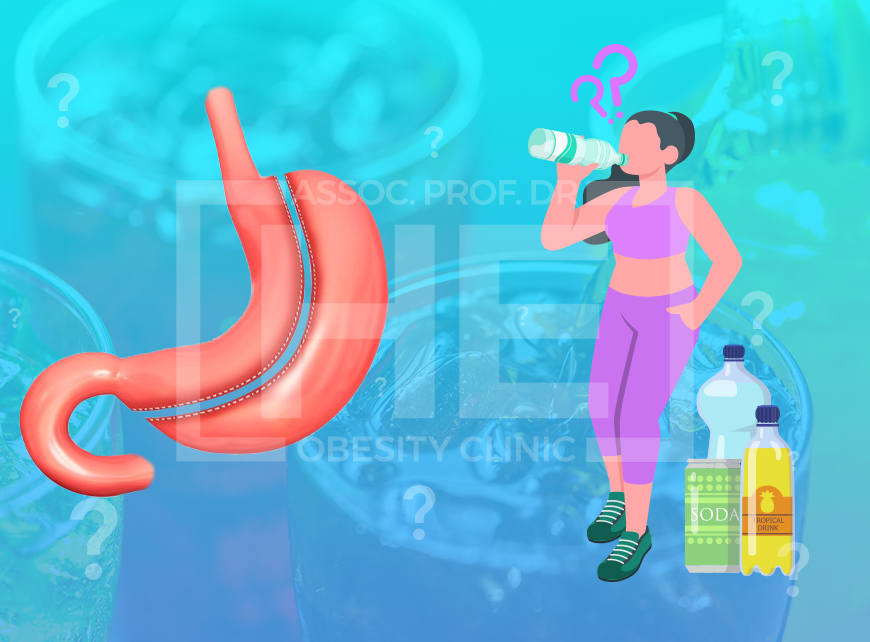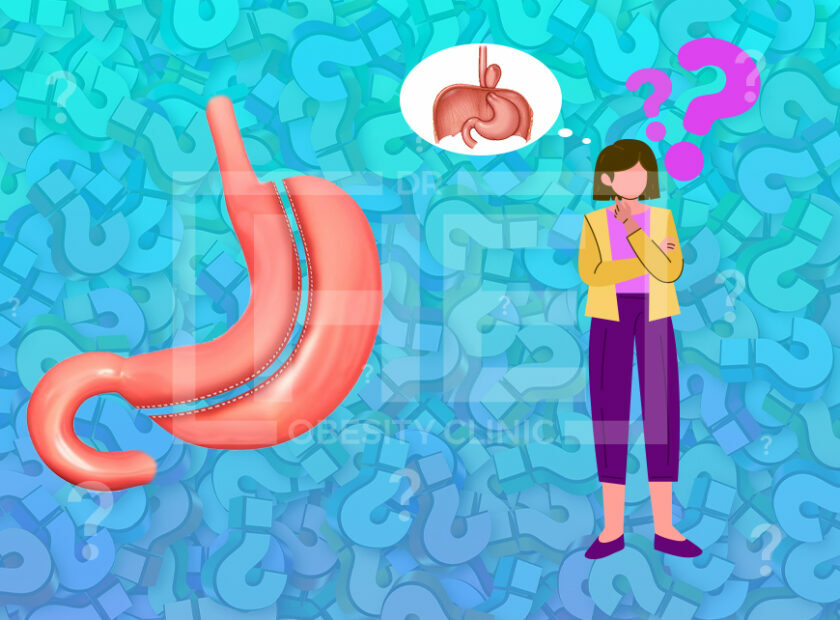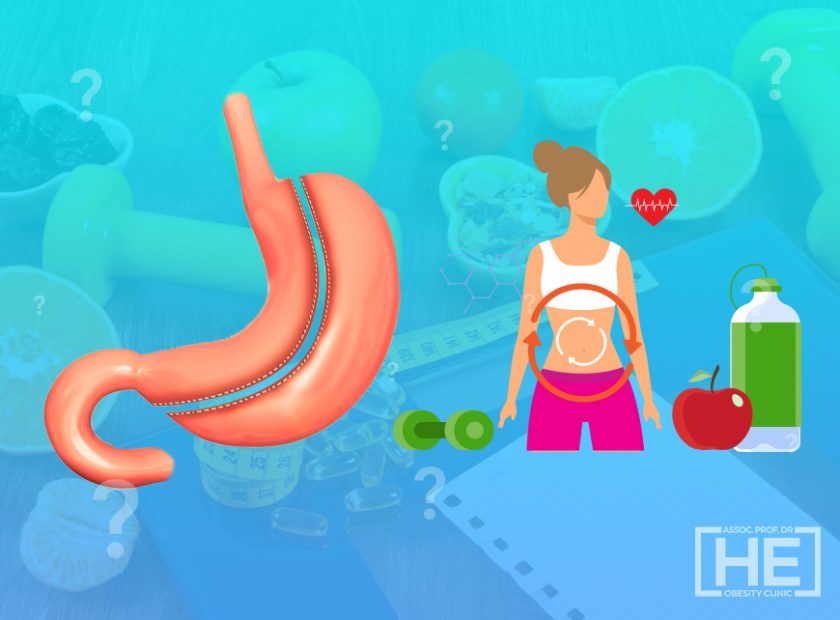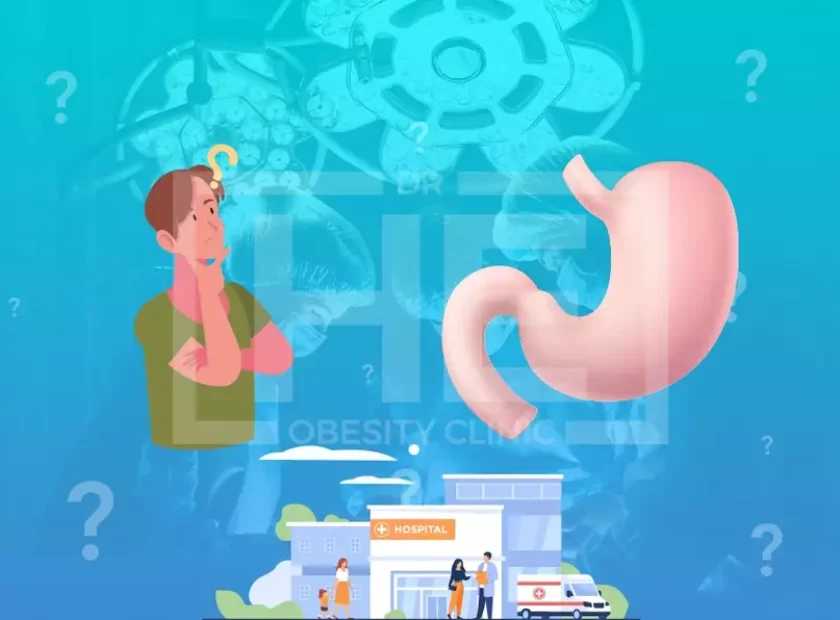
Can liquids stretch your stomach after gastric sleeve surgery? How much liquid can your stomach hold? For the first 1 month after the operation, the person should take about 2.5 liters of liquid daily. Approximately 1.5 liters of water should be taken from the 2.5 liter liquid. The remaining 1 liter liquid needs should be provided with buttermilk, meat or chicken broth.
The amount of nutrients to be taken daily should be about 750 ml. In patients with bariatric surgery, it may not be possible to meet the need for fluids only with water.
In intermediate meals, you support milk, buttermilk, soup, compote and a deciduous amount of liquid intake is involved. But it should be noted that coffee, tea and other drinks containing decaf are among the mistakes made to think that you are taking liquid.
Drinks with high decaf content are not among the water sources because they cause you to lose more fluid through the urine due to their diuretic effect. Do not forget to drink water after drinking tea and coffee to prevent fluid loss.
If you have nausea while drinking water, add a piece of ginger and lemon slices to your juice. For those who have difficulty consuming water, changing the aromatic structure of water will make it easier for you to drink water. Add mint leaves and fresh fruits, cinnamon sticks, cloves, and you should find a taste that you will love.
Recommended content: Gastric Sleeve Turkey
Can liquids stretch your stomach after gastric sleeve surgery?
Can liquids stretch your stomach after gastric sleeve surgery? After undergoing gastric sleeve surgery, many patients are curious about the effects of liquids on their stomach. It’s a common concern to wonder whether consuming liquids can stretch the stomach and potentially reverse the effects of the surgery.
First, it’s important to understand the purpose of gastric sleeve surgery. This procedure involves the removal of a large portion of the stomach, leaving behind a smaller, sleeve-shaped stomach. The main goal of this surgery is to reduce the size of the stomach and limit the amount of food it can hold. This results in a feeling of fullness with smaller portion sizes, ultimately aiding in weight loss.
So, can liquids stretch the stomach after gastric sleeve surgery? The short answer is no. Unlike solid foods, liquids do not have the ability to stretch the stomach in the same way. The stomach is designed to accommodate liquids more easily, as they can pass through the digestive system relatively quickly. However, it’s important to note that while liquids may not physically stretch the stomach, they can still impact your weight loss progress and overall health if consumed in excess.
It’s crucial for patients who have undergone gastric sleeve surgery to adhere to their surgeon’s guidelines regarding dietary recommendations. In the initial stages of recovery, patients are typically advised to follow a strict liquid diet to allow the stomach to heal properly. This phase often includes consuming clear broths, water, and other low-calorie, non-carbonated beverages. As patients progress through the post-surgery phases, they will gradually introduce thicker liquids and eventually solid foods into their diet.
While liquids may not directly stretch the stomach, excessive consumption of high-calorie or sugary beverages can hinder weight loss and potentially lead to discomfort. It’s essential for patients to prioritize nutrient-dense liquids such as protein shakes, vegetable juices, and water to support their overall health and weight loss goals.
In addition to being mindful of liquid intake, patients should also focus on developing healthy eating habits and portion control. Despite the reduced stomach size following surgery, it’s still possible to overconsume liquids and experience discomfort. Practicing mindful eating, sipping fluids slowly, and paying attention to hunger and fullness cues can contribute to long-term success after gastric sleeve surgery.
It’s also worth mentioning that staying hydrated is crucial for overall health, especially after gastric sleeve surgery. Dehydration can lead to a range of complications, including dizziness, fatigue, and electrolyte imbalances. Patients should prioritize consuming an adequate amount of water throughout the day to support their body’s healing process and promote optimal health.
How much liquid can your stomach hold?
How much liquid can your stomach hold? The human stomach is an incredible organ that plays a crucial role in the digestion of food and the absorption of nutrients. One of the questions that often arises when discussing the stomach is, “How much liquid can your stomach hold?”
The average capacity of the human stomach is approximately 1 liter, or 33.8 fluid ounces. However, this can vary depending on a number of factors, including the individual’s size, age, and gender. For example, a larger person may have a larger stomach capacity, while a smaller person may have a smaller capacity. Additionally, the stomach of an adult is generally larger than that of a child.
It’s important to note that the stomach is a highly elastic organ, meaning that it can expand to accommodate larger volumes of food and liquid. When you consume a meal or a beverage, the stomach stretches to accommodate the incoming substance. This stretching triggers receptors in the stomach wall that send signals to the brain, indicating that the stomach is full.
The rate at which the stomach empties its contents into the small intestine also plays a role in its capacity to hold liquid. The stomach has a muscular valve called the pyloric sphincter, which controls the passage of food and liquid into the small intestine. The rate at which the pyloric sphincter opens and closes can affect how much liquid the stomach can hold at any given time.
In addition to physical factors, there are also psychological factors that can influence the capacity of the stomach. For example, feelings of stress or anxiety can cause the stomach to contract, reducing its capacity to hold liquid. On the other hand, feelings of relaxation and contentment can have the opposite effect, allowing the stomach to expand and accommodate more liquid.
It’s also worth mentioning that the type of liquid being consumed can impact the stomach’s capacity. For example, carbonated beverages can cause the stomach to expand more than non-carbonated beverages due to the gas they contain. Similarly, consuming a large volume of water in a short period of time can cause the stomach to distend and feel uncomfortably full.
In some cases, medical conditions can affect the capacity of the stomach to hold liquid. For example, gastroparesis is a condition in which the muscles of the stomach are unable to function properly, leading to delayed emptying of the stomach contents. This can result in feelings of fullness and discomfort, even after consuming small amounts of liquid.
Liquid consumption after Gastric sleeve
On the third day after the tube stomach surgery, the patient is tested for leakage with water containing methylene blue. If blue water is not seen in the drain after drinking blue water, the 15-day liquid diet period has begun.
During this 15-day liquid diet period, it is the most important rule of this period not to consume any solid nutrients in the mouth. Liquids drunk during this period should be warm, transparent, clear, grain-free, and sugar-free.
During this period, fresh fruit juice or sugar-free compote, lactose-free milk, buttermilk made from lactose-free milk, broth/ chicken broth/ bone broth and protein-enhanced drinks and plenty of water should be consumed. During the liquid period, there is no concept of meals, patients can consume one of their options as they get hungry.
Fruit choices are important when preparing fresh juice or sugar-free, grain-free compote. Acidic fruits such as oranges, tangerines, grapefruit; sour fruits such as Cherries, pomegranates should not be preferred. Apple, pear juice and or apricot, quince compote are reliable for this period.
Since fruit juices do not contain protein, it is recommended to drink a glass during this period. Lactose-free milk/ soy milk should be preferred over normal milk during this particular period, so that there will be no digestive problems.
For those who are looking for a salty taste, whose blood pressure drops during the day, they can choose buttermilk made by mixing water in lactose-free yogurt.
Another source of protein is meat/chicken/ bone broth. When making meat juices, tomato paste, spices, oil, lemon, onion, garlic should not be placed in the boiling water. People who do not suffer from high blood pressure can put some salt in it.
Patients who do not find the taste of chicken/broth Pleasant can put it in vegetables that do not make gas and flavor it with the condition that they filter it later. Another important drink that should be consumed during this period is foods high in protein.
Getting as much protein as patients ‘ daily needs ensures that hair loss that may occur in later November is minimal, muscle loss is minimal, and the healing process is faster. During this period, it is necessary to consume a lot of water. Otherwise, patients may feel dizziness, dark eyes, and weakness.
Patients who have difficulty drinking water can dilute their milk to increase their water intake, make their buttermilk with plenty of water, or drink warm lime. During this period, open, warm, unsweetened tea can be drunk, but coffee should definitely not be consumed.
It should be noted that after tube stomach surgery, the stomach remains about 150 ml. Drinks should be drunk very slowly and with small sips. People may experience nausea or a feeling of blockage in the esophagus when they take a large sip.
Patients who have difficulty shrinking their SIPs can drink their drinks with a dessert or teaspoon instead of a tablespoon.
Diarrhea or constipation may occur for the first 15 days depending on liquid nutrition. If such conditions are encountered, the doctor and dietitian should be contacted and their recommendations for a solution should be followed.
What liquids can I have after gastric sleeve?
To prevent dehydration, you should consume at least 1.5-2 Liters of water. You should drink at least 6-8 cups of water a day. Green tea, cherry tea, and acid-free drinks are recommended.
Otherwise, you may experience such conditions as headache, dizziness, nausea, weakness, white sores on the tongue, dark urination. Please note that your water consumption is also very important for your kidney health. After gastric sleeve surgery, your stomach can take 150-200 ml of fluid during meals.
You can feel full when you take 2-3 tablespoons of your food. Do not consume more nutrients after this feeling, otherwise, you may feel contractions in your stomach. After 6-9 months, your new stomach will guide you about the amount of your food.
How Much Fluid Can Your Stomach Hold After Gastric Sleeve Surgery?
After gastric sleeve surgery, you will have limited amounts of stomach space, making it difficult to drink liquids. However, liquid intake is vital to minimize the chance of dehydration.
Although your stomach will initially be swollen after surgery, it will begin to shrink in size on day four. Within a few days, you’ll be able to meet your daily fluid goals again.
The first day following the surgery, you’ll be limited to 150 ml of liquid. Your first few sips will be difficult, and you may experience nausea or a blockage in the esophagus. Your physician will prescribe a liquid diet.
Drinking too much will shorten the time your food has to mix with stomach acids and cause nutritional deficiencies. To limit this problem, most physicians recommend drinking liquids 30 minutes before eating and one hour afterward.
After gastric sleeve surgery, your new stomach will determine the amount of food and fluid your stomach can hold. Initially, you can’t eat solid foods for about five to six weeks after surgery.
You should also take vitamin supplements and drink 50 ounces of water a day. To lose weight, you should follow your surgeon’s nutrition plan. You should track protein intake, plan your meals, and take supplements.
You should know that your stomach can hold around 2 to 3 ounces of fluid at a time. However, this figure may change as your weight decreases.
During the surgery, the 80% of your stomach is removed. The remainder of your stomach is divided into two or three smaller compartments called bougies. Once your sleeve is detached, the 80% stomach will be empty.




